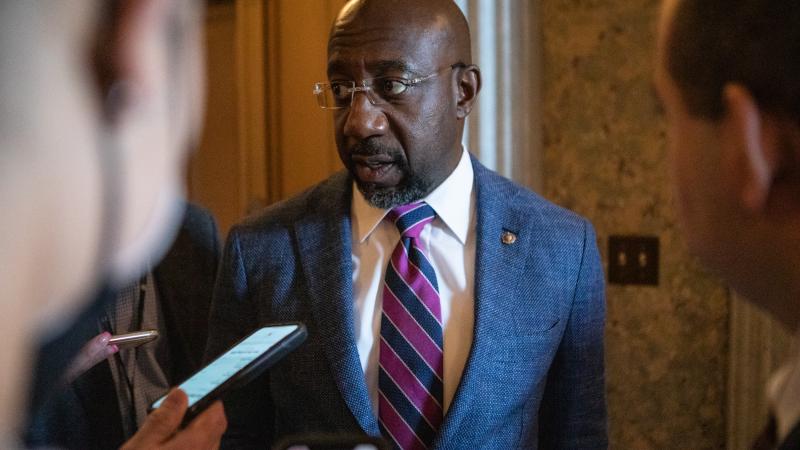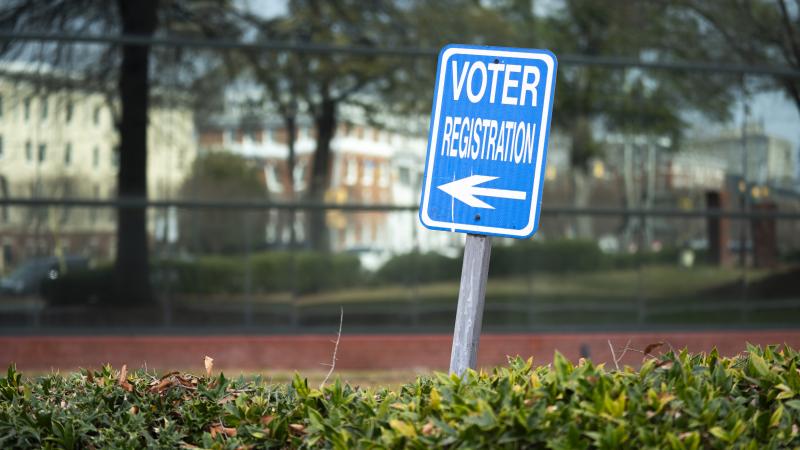COVID aid fraud watchdogs on Hill: End 'self-certification' for funds, tap data to curb aid to dead
Chairman of Pandemic Response Accountability Committee and a top GAO official testified federal agencies should have been better equipped to vet eligibility claims of applicants seeking COVID relief aid than they were, based on massive fraud estimates.
Two top federal watchdogs have shared the lessons that Congress must learn from the massive fraud that marred pandemic relief programs, including two key takeaways: Tap existing government data to avoid sending government aid to dead people, and test applicant claims of eligibility for benefits through independent verification.
Michael Horowitz, chairman of the Pandemic Response Accountability Committee, and Gene Dodaro, the Government Accountability Office's comptroller general, testified at the GOP-led House Oversight Committee's hearing on the "rampant waste of taxpayer dollars in COVID relief programs."
Federal agencies should have been better equipped to vet eligibility claims of applicants seeking COVID relief aid than they were, based on massive fraud estimates, the officials agreed.
Dodaro said the federal government had a "Do Not Pay" system in place prior to the pandemic. He said close to $4 billion was sent through COVID relief programs to individuals on the DNP list after the $2.2 trillion CARES Act passed in March of 2020. Dodaro said it is still too early to tell how much of that money was fraudulently obtained.
Dodaro recommended Congress amend the Social Security Act to accelerate and make permanent the requirement for the Social Security Administration to share its full death data with Treasury's DNP working system. This would help federal agencies to detect when a fraudster is applying for federal assistance using a dead person's Social Security number — before the money is sent out the door. It would also help prevent large numbers of improper payments by agencies like the Internal Revenue Service, which sent out stimulus checks to deceased people using their latest tax information on file.
Prior to final passage of the CARES Act, Just the News made multiple attempts to find out from the Treasury Department's inspector general if the agency was going to check Social Security's death list prior to sending out stimulus payments, but we never received a response.
In his written testimony, Dodaro suggested that Congress "(1) Designate all new federal programs distributing more than $100 million in any one fiscal year as 'susceptible to improper payments,' and, thus, subject to more timely improper payment reporting requirements; and (2) require agencies to report improper payment information in their annual financial reports."
The Department of Labor reported an "improper payment estimate for the Unemployment Insurance program of $78 billion" for fiscal year 2021, according to Dodaro. That estimate included the Federal Pandemic Unemployment Compensation and Pandemic Emergency Unemployment Compensation programs. Some estimates put the amount of money paid to fraudsters under the Paycheck Protection Program as high as $80 billion.
According to Dodaro, the Labor Department's inspector general "applied the fiscal year 2021 DOL-reported improper payment rate of 18.71 percent to its estimate of $872.5 billion in pandemic UI payments" for its fiscal year 2022 calculations. The inspector general concluded that "at least $163 billion in pandemic UI benefits could have been paid improperly" and a "significant portion of these estimated improper payment amounts could be attributable to fraud." He said the inspector general's office "did not provide further clarification of what the fraud rate might be."
Horowitz testified that agencies should stop relying solely on "individuals attesting that they are eligible for benefits," referring to the first round of the Paycheck Protection Program, which was about $400 billion. He said lenders were not checking if the businesses on application forms for forgivable loans were legal entities, instead relying on "self-certification" from applicants. The CARES Act did not specifically prohibit self-certification as an anti-fraud measure.
"These loans were approved with few, if any, controls to check if the applicant was legitimate and qualified for aid," Horowitz said.
The Department of Labor's pandemic unemployment assistance system was allowing self-employed individuals to apply for unemployment benefits for the first time. Horowitz said much of the information federal and state agencies relied on was supplied by the applicant and not verified.
In November 2020, the Pandemic Response Accountability Committee reported that the Labor Department's inspector general had "questioned relying on self-certification to approve applications with senior leaders on multiple occasions; however, DOL senior leaders maintain their position that the CARES Act only requires self-certification and does not require proof of employment."















